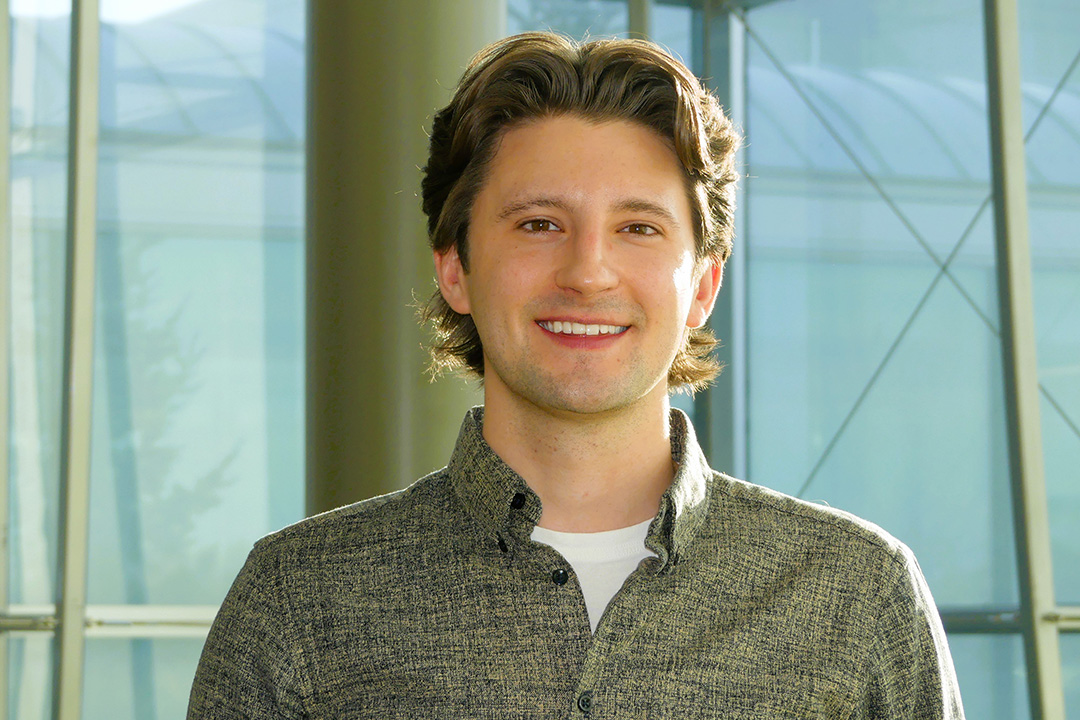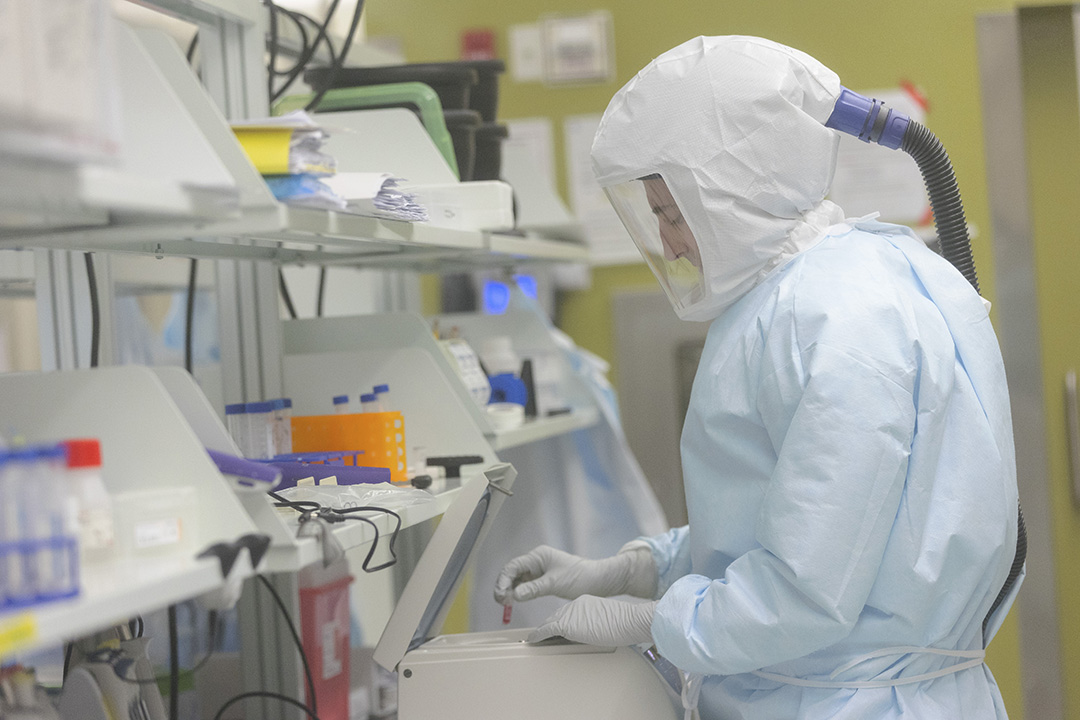
USask student works to crack the code of Long COVID
University of Saskatchewan (USask) graduate student Ethan Jansen is on a mission to help those affected by emerging global viruses and has joined a team of Canadian researchers leading the charge to discover more about the long-term effects of COVID-19.
By BROOKE KLEIBOERHaving started his master’s program during the height of the pandemic, Jansen “jumped at the opportunity” to join a research team that studied SARS-CoV-2 – the virus that causes COVID-19 – at the university’s world-class Vaccine and Infection Disease Organization (VIDO).
“I am particularly interested in emerging viruses and global health,” said Jansen. “I knew people experiencing Long COVID and was lucky enough to be working with top researchers in virology as well as public health in Saskatchewan.”
Long COVID is characterized by causing long-term symptoms in those previously infected with the virus. Symptoms can include shortness of breath, chronic cough, headaches, brain fog, and fatigue, which can “greatly impact the quality of life of those inflicted,” Jansen said.
He has been a key member of a VIDO research team looking to understand how immune responses can be different in those who suffer from Long COVID, which could help researchers understand why some people get Long COVID in the first place.
“There are many potential causes for the symptoms of Long COVID, including the lingering of virus well past initial infection, continued inflammation, virus-induced autoimmunity (when the virus causes your body to attack itself), micro blood clots, and poor antibody responses, to name a few,” said Jansen.
Under the expert supervision of VIDO virologist Dr. Alyson Kelvin (PhD), Jansen was involved in the creation of the Sask Long COVID app that was built to collect the experiences of people in Saskatchewan with Long COVID symptoms. Jansen said the project helped to demonstrate the need for more supports and a better understanding of post-viral disease.
“We first wanted to understand the clinical impact of Long COVID in Saskatchewan, and then [focus on] potential differences in the immune response of those experiencing prolonged symptoms,” he said.
To kick off the next phase of the research, Jansen – under the leadership of Dr. Kelvin – collected health information and blood samples from a group of volunteer study participants. He then conducted experiments using the SARS-CoV-2 virus in VIDO’s high-containment facilities to determine how antibodies function when exposed to the virus.
“These experiments look at the ability of someone’s antibodies to prevent entry of the virus into cells,” he said. “Virus neutralization is an essential function of antibodies when fighting a virus.”

Their study identified differences in the immune response in people with Long COVID compared to individuals recovered from COVID-19. First, and most notably, those with Long COVID had lower levels of virus neutralization antibodies and a weaker immune response to SARS-CoV-2. They also noticed female participants with Long COVID had higher and sustained levels of certain proteins that induce inflammation. These proteins, called cytokines, may be driving the symptoms experienced by females with Long COVID.
Findings from the team’s new study that assess these important immune system characteristics have been sent to an academic journal for review and will provide new insights into immune system responses in those with Long COVID.
“This work contributes to the growing body of knowledge about Long COVID and the complexities behind the diverse nature of the disease,” said Jansen. “We show some key features of the immune response of people recovering from COVID-19, and/or experiencing Long COVID that should be taken into consideration when designing therapeutics, supportive therapies, and even vaccine dose regimens.”
Jansen said that in total, around 200 people volunteered to participate in the study, many suffering from debilitating symptoms, and offered up their time to share their experiences with Long COVID and supply a blood sample.
“Overall, we have tried to go about this research from the patient’s perspective,” he said. “We are hoping to follow up with people in this study to measure changes in their health and immune response over a longer period of recovery as well.”
Jansen hopes to continue his career in the field of virology by helping to understand the biological mechanisms behind conditions like Long COVID, and to help support those who are impacted by such conditions.
“So many of our participants shared how they wanted to help other people by contributing to the understanding of Long COVID so that in the future there are effective therapies and supports available,” he said. “I am planning to continue to work in global health and emerging pathogen research and policy.”
The research is supported by the Canadian Institutes of Health Research and the Saskatchewan Health Research Foundation. VIDO receives operational funding from the Canada Foundation for Innovation through the Major Science Initiative Fund, and from the Government of Saskatchewan through Innovation Saskatchewan and the Saskatchewan Ministry of Agriculture.
This article first ran as part of the 2023 Young Innovators series, an initiative of the USask Research Profile and Impact office in partnership with the Saskatoon StarPhoenix.
Article re-posted on .
View original article.

